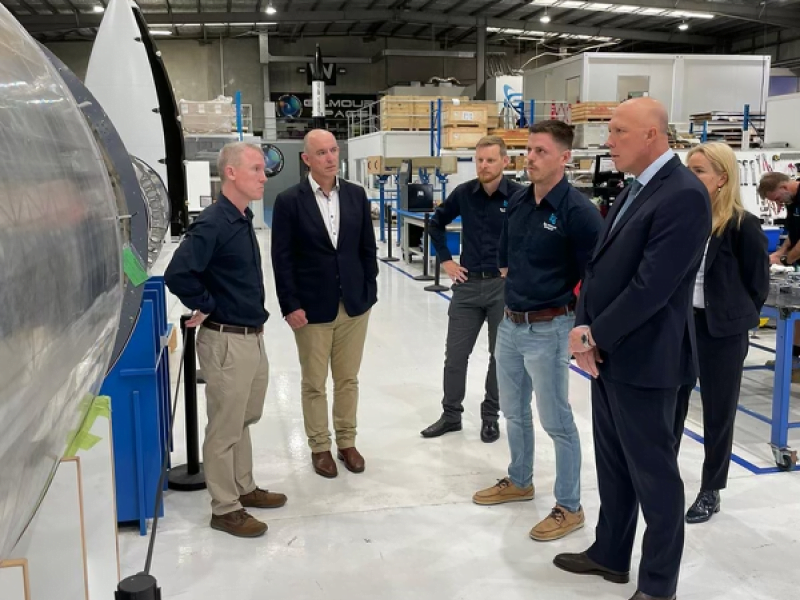Queensland-based rocket company Gilmour Space Technologies has secured a $15 million deal to develop and launch satellites for the Department of Defence by mid-2023.
Gilmour Space will develop a prototype satellite using their G-class satellite bus for Australia’s space force and will be deployed through the firm’s proprietary Eris rocket at an Australian launch site. This will be the firm’s second G-Sat they launch after their prototype.
The funding comes out of the federal government’s 10-year $7 billion strategic space defence capability originally announced through the 2020 Defence Strategic Update and the 2020 Force Structure Plan.

Defence Minister Peter Dutton said the investment is in line with the Defence Space Strategy released in March.
“I am proud to announce this $15 million investment in new military space capabilities to counter threats and assure our continued access to space-based intelligence, surveillance and reconnaissance,” Mr Dutton said.
The G-class satellite bus is designed for the 100 kilogram class of small satellites and is a cube with 66-centimetre sides filled with standardised flight components. Development will be led by Gilmour who will partner with a number of other Australian firms as well as Griffith University for specific R&D and components.
Gilmour Space chief executive Adam Gilmour said the investment was great for the company as well as building sovereign capability more generally.
“This is a big milestone for an Australian-owned company that’s working hard to develop sovereign space and launch capabilities for our Civil, Commercial and Defence customers,” Mr Gilmour said.
“Under this deal, Gilmour Space will be developing a G-class satellite for Defence and launching it on our Eris rocket from an Australian launch site. We firmly believe that partnerships like this will help to grow future Space and Defence primes in Australia and lead to more capability for Defence in the years ahead.”
Last month, the firm signed a deal with Perth-based LatConnect 60 to develop and launch HyperSight 60 satellites using the G-class satellite bus. This is expected to take place at the end of 2024.
In 2021, Gilmour signed a memorandum of understanding with American space communications firm SpaceLink to integrate the G-class satellite into its relay network. SpaceLink is the United States subsidiary of ASX-listed defence and space company Electro Optics Systems. At the time, the firm announced that the G-class satellite bus would be ready for deployment from 2022 onwards.
The SpaceLink relay network provides the access and transfer of data through the internet, private clouds, or other secure delivery to anywhere on Earth. This is because its at least one satellite in its medium earth orbit network is always in range of low earth orbit satellites or other spacecraft.
Gilmour is hoping to conduct its first launch at its Bowen Orbital Spaceport in October this year following successful tests in January. The Eris is a three-stage rocket which uses a 3D printed hybrid propellant, meaning the fuel is comprised of a solid a gaseous phase.
The firm began its rocket program in 2015 is now Australia’s largest space company, with a staff of 140 people. They also launched Australia’s first privately developed hybrid rocket in 2016.
Do you know more? Contact James Riley via Email.

